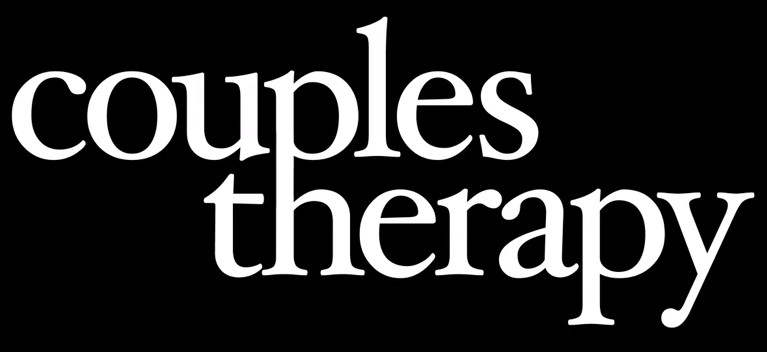
The Lover’s Guide to Couples Therapy: Navigating Relationship Challenges with Compassion
Navigating the intricate landscape of relationships can be challenging. Every couple encounters unique hurdles, and sometimes, the best way to overcome these challenges is with the help of a professional. Couples therapy offers a structured and supportive environment where partners can explore their issues and strengthen their bond. Here’s a detailed guide to understanding and making the most of couple’s therapy.

Couples Therapy
Understanding Couple’s Therapy
Couples therapy, also known as marriage counselling or couples counselling, is a form of psychotherapy designed to help partners improve their relationship. It focuses on resolving conflicts, enhancing communication, and fostering intimacy. The therapy may involve individual sessions as well as joint sessions where both partners participate.
When to Seek Couples Therapy
Recognizing the right time to seek therapy can be crucial. Here are some signs that it might be time to consider couple’s therapy:
Frequent Arguments: If you find yourselves arguing often, and the conflicts seem to be escalating, therapy can provide strategies to manage disagreements constructively.
Communication Breakdown: When communication becomes strained or ineffective, and you struggle to understand each other’s perspectives, therapy can help improve dialogue.
Loss of Intimacy: A noticeable decline in emotional or physical intimacy might signal underlying issues that therapy can address.
Life Transitions: Major life changes such as marriage, parenthood, or career shifts can strain relationships. Therapy can provide support during these transitions.
Infidelity or Trust Issues: Dealing with infidelity or breaches of trust can be challenging. Therapy can offer a safe space to address these issues and work towards healing.
What to Expect in Couples Therapy
Initial Assessment: The therapist will typically begin with an initial assessment to understand the relationship dynamics, the presenting issues, and the goals of therapy.
Setting Goals: Together with the therapist, you and your partner will set specific, achievable goals for your therapy sessions. These goals might include improving communication, resolving conflicts, or rebuilding trust.
Therapeutic Techniques: Therapists use various techniques to facilitate healing. Some common approaches include:
Cognitive-Behavioral Therapy (CBT): Focuses on changing negative thought patterns and behaviours that impact the relationship.
Emotionally Focused Therapy (EFT): Aims to strengthen the emotional bond between partners by addressing underlying emotions and attachment needs.
Gottman Method: Uses research-based interventions to improve communication and resolve conflicts effectively.
Narrative Therapy: Helps couples reframe their relationship stories and develop a more positive perspective on their issues.
Homework Assignments: Therapists may assign tasks or exercises to complete between sessions to reinforce the work done in therapy and encourage practice of new skills.
Making the Most of Therapy
Be Open and Honest: Successful therapy relies on transparency. Share your feelings, concerns, and perspectives openly with your partner and the therapist.
Commit to the Process: Therapy requires commitment from both partners. Regular attendance and active participation are crucial for making progress.
Practise New Skills: Apply the techniques and strategies learned in therapy to real-life situations. This practice can help solidify changes and improve relationship dynamics.
Be Patient: Change takes time. Be patient with yourselves and each other as you work through the challenges and celebrate the progress.
The Benefits of Couples Therapy
Enhanced Communication: Therapy helps partners develop healthier communication patterns, leading to more effective discussions and fewer misunderstandings.
Deeper Connection: By exploring emotional needs and vulnerabilities, therapy can strengthen the emotional bond and intimacy between partners.
Conflict Resolution Skills: Couples learn strategies for managing and resolving conflicts in a constructive manner, reducing the likelihood of recurring issues.
Increased Understanding: Therapy promotes empathy and understanding, allowing partners to appreciate each other’s perspectives and experiences.
Personal Growth: Individual growth is often a byproduct of couple’s therapy, as partners work on their personal issues and improve self-awareness.
What qualities do you think are important in a couple’s therapist?
Empathy and Compassion
Understanding and Supportive: A therapist should be able to understand and empathise with both partners’ feelings and perspectives.
Non-Judgmental: They should create a safe space where both partners feel valued and heard without fear of judgement.
Effective Communication Skills
Active Listening: The ability to listen attentively and reflectively to each partner’s concerns.
Clear Articulation: Communicates ideas and strategies clearly and effectively to avoid misunderstandings.
Neutrality and Objectivity
Unbiased Perspective: Maintains neutrality and does not take sides, ensuring that both partners feel equally supported.
Fairness: Balances the needs and concerns of both individuals without favouritism.
Expertise and Training
Specialised Knowledge: Holds relevant qualifications and training in couple’s therapy and understands various therapeutic approaches.
Experience: Has a track record of working successfully with couples facing similar issues.
Patience and Persistence
Long-Term Commitment: Demonstrates patience and commitment to working through complex issues over time.
Encourages Effort: Motivates couples to continue working on their relationship even when progress is slow.
Problem-Solving Skills
Strategic Guidance: Provides practical strategies and exercises to help couples address and resolve conflicts.
Creative Solutions: Thinks outside the box to find effective solutions tailored to the couple’s unique situation.
Emotional Stability
Resilient: Maintains composure and stability even when discussing difficult or intense topics.
Supportive Demeanour: Provides emotional support without becoming overly involved or distressed.
Respect for Boundaries
Sensitivity: Respects personal boundaries and helps couples establish their own boundaries in therapy.
Confidentiality: Upholds strict confidentiality to build trust and ensure privacy.
Flexibility and Adaptability
Tailored Approach: Adapts therapeutic methods to fit the specific needs and dynamics of the couple.
Responsive to Feedback: Willing to adjust strategies based on the couple’s feedback and progress.
Encouragement and Empowerment
Positive Reinforcement: Encourages and supports couples in recognizing their strengths and achievements.
Empowerment: Helps couples feel empowered to take ownership of their relationship and implement changes.
Cultural Competence
Awareness: Understands and respects cultural, religious, and personal backgrounds that may influence the couple’s dynamics.
Inclusive: Ensures that therapy is inclusive and sensitive to diverse perspectives and experiences.